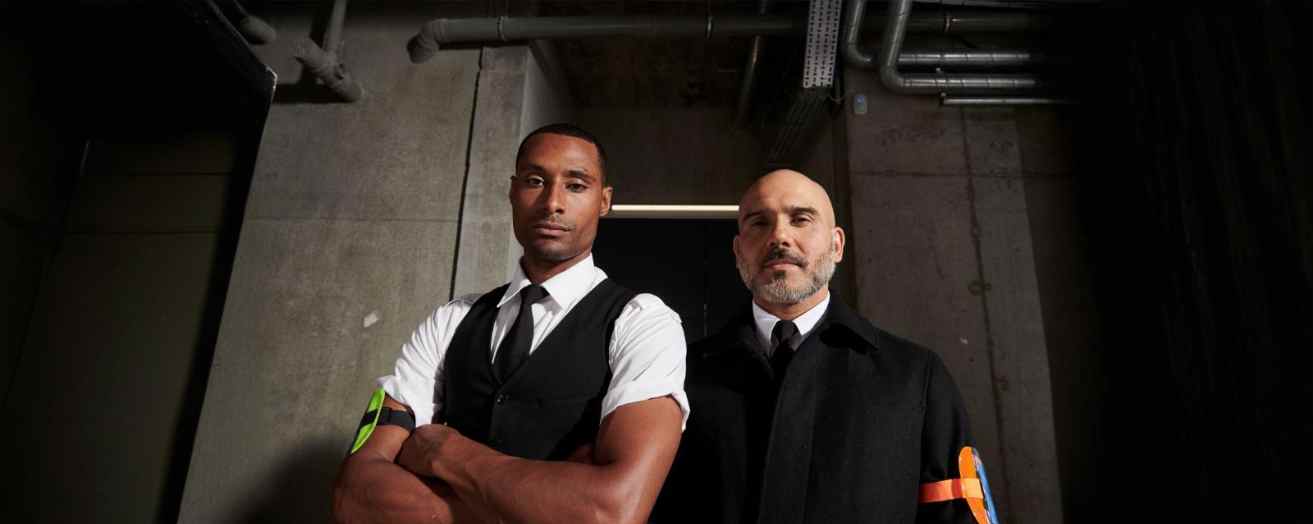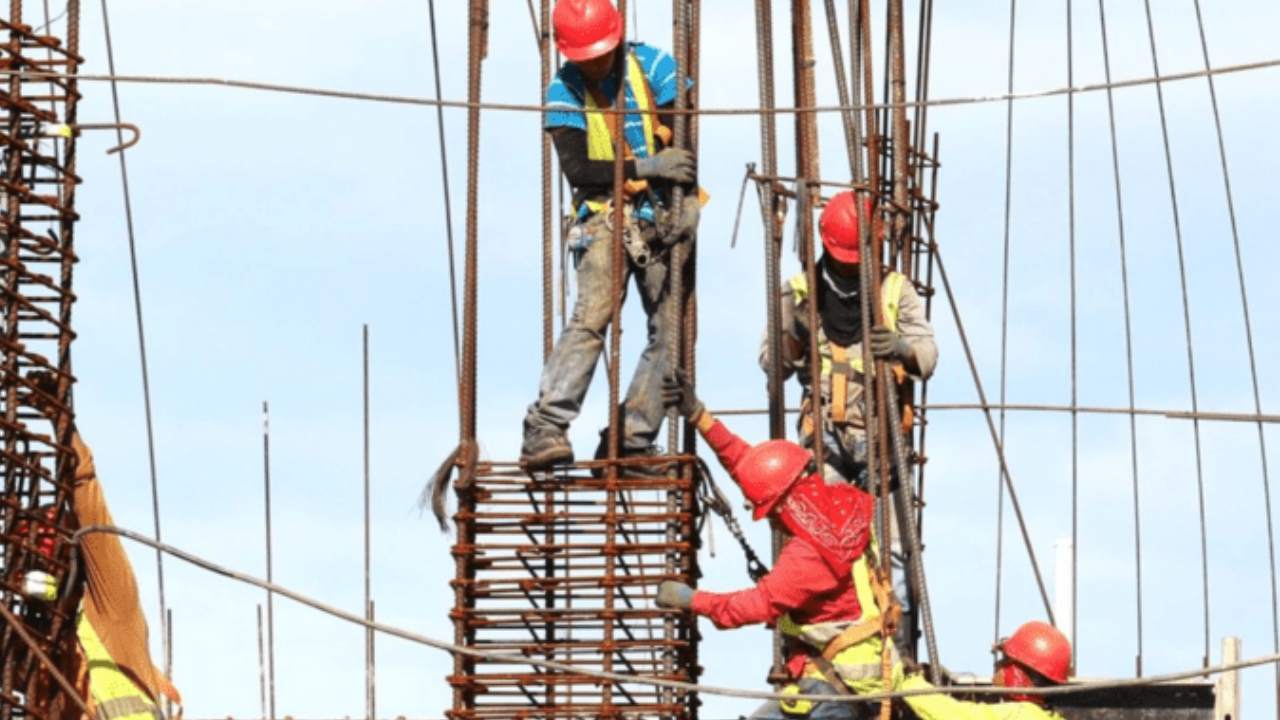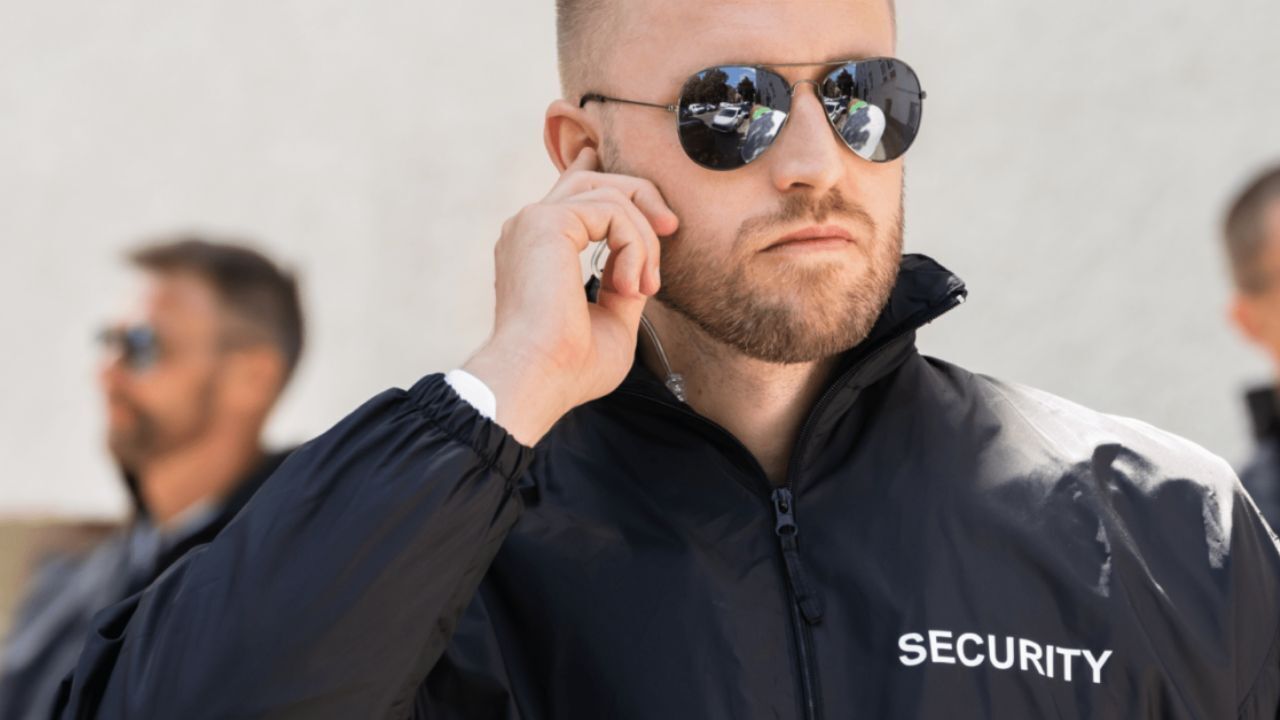Walking into a security interview can feel daunting, especially when you’re not sure what questions to expect. Certain questions appear consistently across the UK security industry, and knowing how to handle them can dramatically improve your chances of landing the job.
The key to success isn’t memorising perfect answers, but understanding what employers are really looking for and learning to present your authentic experiences in ways that demonstrate the qualities they value most. After all, security managers aren’t just evaluating your qualifications and your SIA licence validity; they’re assessing your character, judgment, and genuine suitability for work that requires trust and responsibility.
Keep reading this blog to learn more about the top security interview questions you should prepare for.
Tell Me About Yourself
This opening security interview question sets the tone for everything that follows, yet most candidates either ramble about their life story or deliver a boring recitation of their CV. Neither approach works because they miss the fundamental purpose: giving you the opportunity to immediately establish yourself as someone with the right character for security work.
The most effective approach follows a simple but powerful formula: state your core qualities, provide a concrete example that demonstrates these qualities, and explain why you want to work in security. This structure ensures you cover the essential elements while keeping your response focused and relevant.
Your core qualities should align with what security work actually requires. Rather than trying to sound impressive, focus on authentic traits like reliability, attention to detail, or natural concern for others’ well-being. These everyday qualities are exactly what employers want to hear because they translate directly into effective security work. The example you choose doesn’t need to be dramatic or security-related. Some of the most compelling responses draw from retail work, family responsibilities, or community involvement. What matters is that your example clearly illustrates the qualities you’ve claimed.
When explaining your interest in security work, avoid generic phrases like “I want to help people.” Instead, connect your personal values and natural tendencies to the specific responsibilities of security work.
Why Do You Want to Work in Security?
This security interview question separates candidates who just need employment from those who see security as meaningful work. Your answer needs to show authentic motivation that goes beyond basic employment needs, demonstrating that you understand and value the unique responsibilities of security work.
Effective responses often begin with personal reflection about what drives you. Perhaps you’ve always been naturally protective of others, or you’re drawn to work that has real purpose and makes a tangible difference in people’s lives. The key is connecting these personal motivations to the specific nature of security work.
Many successful candidates discuss how they’ve observed security professionals in action and been impressed by their professionalism and the important role they play in keeping communities safe. Before pursuing security work, ensure you understand the SIA licensing requirements that govern the industry.
Avoid focusing primarily on practical benefits like job stability or flexible hours. While these considerations are legitimate, leading with them suggests you’re more interested in what the job can do for you rather than what you can contribute.
Recommended Reading: Top 10 Security Jobs For 2025

What Are Your Greatest Strengths?
This security interview question requires a careful balance between confidence and authenticity. You need to highlight strengths that genuinely matter for security work while backing them up with credible examples.
Attention to detail is a strength that resonates strongly with security employers, but only if you can prove it with specific examples. Rather than simply claiming you’re detail-oriented, describe situations where your observational skills prevented problems or caught important issues that others missed.
Reliability is another crucial strength for security work. Employers want to know they can count on you to show up consistently, follow through on commitments, and maintain professional standards even when no one is watching.
The ability to stay calm under pressure is essential for security work, but your examples don’t need to involve emergency situations. Handling difficult customers professionally or maintaining composure during family crises all demonstrate the emotional stability that security work requires.
Communication skills are increasingly important in modern security roles, as professionals must interact effectively with diverse groups while representing their employer’s brand.
Recommended Reading: 5 Skills You Gain With SIA Training
How Do You Handle Stressful Situations?
Security work inevitably involves challenging situations, so employers need confidence that you won’t fall apart when things get difficult. They’re looking for evidence of emotional maturity, practical problem-solving skills, and the ability to maintain professional composure under pressure.
Your examples should demonstrate a thoughtful approach to stress management rather than claiming you never feel pressure. Effective responses often describe specific situations where you remained calm while others became flustered, showing how you prioritised tasks, stayed organised, and focused on solutions.
Customer service experiences provide excellent examples for this question, particularly situations involving upset or frustrated individuals. Describing how you listened carefully to understand their concerns and worked systematically to find solutions shows exactly the kind of temperament security employers value.
Personal examples can be equally powerful, such as managing family emergencies or handling multiple competing demands simultaneously. What matters is demonstrating that you can think clearly and take appropriate action even when feeling pressured.
How Would You Handle an Aggressive Individual?
This question reveals whether you understand that modern security work prioritises de-escalation and conflict prevention over physical confrontation. The wrong answer – focusing on toughness or willingness to fight – immediately disqualifies candidates because it shows they don’t understand the professional approach that security work requires.
Effective responses emphasise staying calm, maintaining a safe distance, and using communication skills to understand and address the underlying causes of aggression. Most aggressive behaviour stems from frustration, feeling unheard, or perceiving disrespect, so showing that you would listen carefully and respond with patience demonstrates professional maturity.
Your answer should also acknowledge the importance of knowing when to call for backup and prioritising everyone’s safety over trying to handle situations alone. This shows good judgment and understanding that security work is about protecting people, not proving personal toughness.
If you have relevant experience dealing with difficult people – whether in customer service, family situations, or community settings – these examples can effectively illustrate your approach to conflict resolution.

Why Should We Hire You?
This final security interview question gives you the opportunity to synthesise everything you’ve discussed and make a compelling case for your candidacy. Just having an SIA licence isn’t enough. Rather than simply repeating your qualifications, focus on the unique combination of character traits, genuine motivation, and relevant experience that you would bring to their team.
Effective responses acknowledge that while you may be new to security work, you possess the fundamental qualities that can’t be taught: integrity, reliability, genuine concern for others, and the emotional maturity to handle responsibility appropriately.
Your answer should also demonstrate that you’ve listened carefully during the interview and understand what they’re looking for. Reference specific points from your conversation that show you’re thinking about how you could contribute to their particular challenges and goals.
Preparing for Success
Security interviews are ultimately about trust and character assessment. By preparing authentic examples that demonstrate the qualities employers value most, you can approach these questions with confidence.
Key Interview Execution Tips:
- Research the company – Spend 15 minutes reviewing their website and recent news
- Professional presentation – Firm handshake, good eye contact, arrive 10 minutes early
- Ask strategic questions – “What are the main challenges facing your security team?”
- Follow up professionally – Send a thank-you email within 24 hours
Understanding your rights during job interviews helps you approach the process with confidence. For additional guidance on preparing your CV for security roles and understanding what employers look for in security candidates, explore our comprehensive career resources.

Master Your Security Interview Today
Remember, the security industry values authenticity over perfection – your genuine character and motivation matter more than having all the “right” answers. The most successful candidates combine thorough preparation with honest self-presentation, demonstrating the trustworthiness, emotional stability, and protective instinct that security work requires.
Whether you’re starting your security career or transitioning from another industry, this guide will help you nail those security interview questions. Explore our complete SIA security training courses and security job app to accelerate your path into the UK security industry, and watch the full video for more insights.
Your security career starts with your next interview; make it count!












